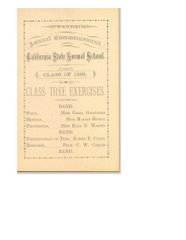I reviewed very briefly a few of the articles related to Library 2.0. I found the article by John J. Riemer on the role of 2.0 and metadata very intriguing. It also fits in with the Chip Nilges article. The concept of the OPAC as the mainframe to library information is clearly on it’s way out. The Open WorldCat Project is a key example. The technology is there to support both technical library cataloging/metadata with tagging resources for non-librarians using WorldCat.
I see the benefit of these tools to develop new creative tools for patron use, but I also believe that the standards created through MARC and DACS need to be maintained along side “sexy” tools offered by the worldcat program and others. I can’t see the Library of Congress subject headings going away any time soon, nor should they. However, they are slow to change categories based on race, class and gender, and perhaps we all could learn something from how our patrons would tag information for their own work.
Nigles refers to “Collective Intelligence” articulated by O’Reilly, which conveys the larger concept of “users add value.” Clearly libraries and librarians need to think beyond the OPAC box, and harness some of this technology to compete with Google.
I am beginning to see the long-term benefits of this 2.0 Learning.
Monday, March 5, 2007
Subscribe to:
Post Comments (Atom)





1 comment:
Excuse me for going off-topic, but as an American women's historian and feminist, you may find the current issue of Nka Journal of Contemporary African Art
(Africana Studies and Research Center, Cornell University --
No.20/Fall 2006)of particular interest. it is devoted to lynching in America, actions in Abu Ghraib and the role of women as activists and participants. Most of the articles are in fact written by women historians. The issue is visually gripping as well.
Post a Comment